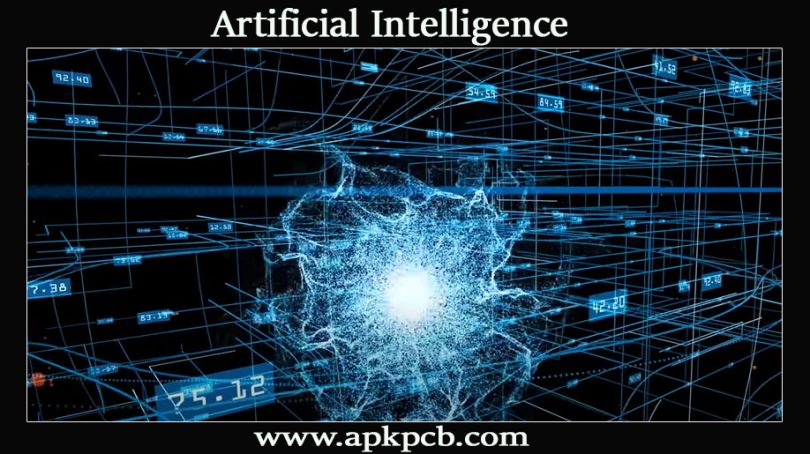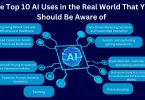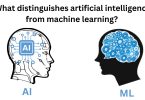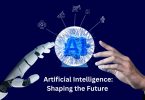The quickly developing field of artificial intelligence (AI) is altering how we interact with technology. This article presents an overview of artificial intelligence and examines its definition, application, advantages, and potential disadvantages.
Acquiring a basic understanding of AI
AI describes the development of smart machines that are capable of doing tasks that have traditionally required cognitive abilities. It includes the subfields of robotics, machine learning, natural language processing, and computer vision.
Applications of Artificial Intelligence
Artificial intelligence (AI) has practical applications across many industries, transforming our lives and the workplace in a variety of ways:
a. Healthcare: AI helps with patient tracking, customized treatment planning, drug discovery, and diagnostic procedures.
b. Finance: AI algorithms help with algorithmic trading, fraud detection, risk assessment, and personalized financial services.
c. Transportation: Autonomous vehicles are powered by AI, which also improves traffic flow and makes predictive maintenance possible.
d. Manufacturing: AI improves supply chain management, predictive maintenance, automation, and quality control.
e. Customer service: Virtual assistants improve user experiences, recommendation systems offer tailored advice, and AI-driven chatbots offer immediate assistance.
The advantages of artificial intelligence
AI has many advantages to give to businesses and society.
Increased Productivity: AI automates monotonous jobs to cut down on human error.
Improved Decision-Making: AI analyzes enormous volumes of data to produce data-driven insights.
Personalized Experiences: AI systems are capable of understanding user preferences and behavior.
Advanced Problem-Solving: AI takes on complex issues and provides creative fixes and optimization techniques.
Human-Machine Collaboration: Collaboration between intelligent robots and humans is made possible by AI, which improves human skills.
Challenges and Factors
While AI presents many opportunities, it also has certain drawbacks.
Ethical Considerations: AI introduces ethical questions about privacy, security, bias, and accountability that must be carefully considered.
Workforce Disruption: Workforce disruption due to AI automation may result in the need for upskilling and reskilling initiatives.
Explainability: Because certain AI algorithms function as “black boxes,” it might be difficult to understand how they make decisions.
Data Privacy: The usage of private information in AI systems necessitates strong data privacy safeguards and open consent procedures.
Trust and Adoption: For AI systems to be widely adopted, it is essential to foster trust in them and promote responsible use.
In summary, artificial intelligence (AI) is becoming an essential component of our contemporary world, driving both innovation and industry transformation. AI has several advantages because of its capacity to carry out difficult jobs and make wise choices. To ensure responsible and fair AI development and deployment, it is crucial to address ethical, societal, and economic issues. A future where intelligent robots empower society and improve our lives will be shaped by embracing the potential of AI while reducing its problems.








